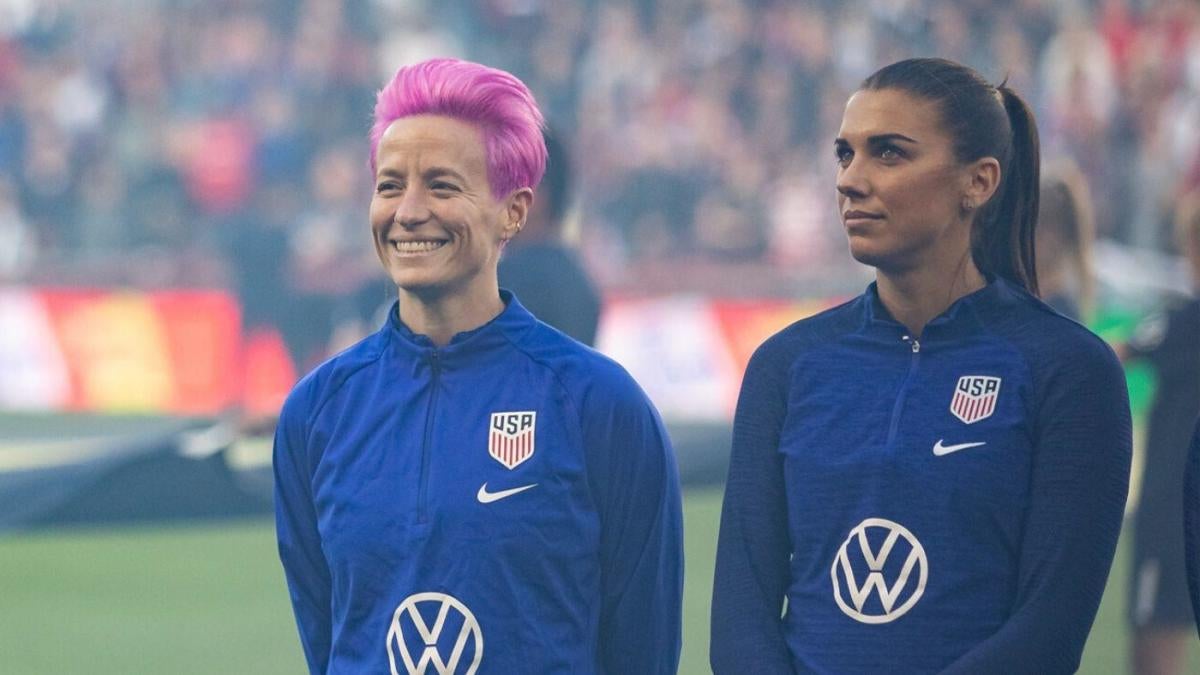The fight for equal pay is rarely a discreet affair, but few sagas have been as public, as protracted, and as profoundly revealing as that of the U.S. Women`s National Team (USWNT). Recent revelations from star striker Alex Morgan on the `Call Her Daddy` podcast have pulled back the curtain once more, offering a candid glimpse into the emotional and strategic toll of battling a system that, at one point, dared to argue women were “inherently inferior.” This isn`t just a sports story; it`s a testament to unwavering conviction in the face of archaic prejudice.
The Unjust Anomaly of Success
Imagine dominating your field, shattering records, and generating unprecedented revenue for your organization. Now imagine being told that despite this undeniable success, your contributions are somehow less valuable than those of your male counterparts, who achieve fewer victories and bring in less income. This was the perplexing reality faced by the USWNT. Following their triumphant 2015 Women`s World Cup victory, the team became a commercial powerhouse. Stadiums sold out, sponsorships poured in, and the financial books of the U.S. Soccer Federation (USSF) reflected this burgeoning profitability.
Morgan recounted the glaring disparity: a win for a USWNT player might net a modest $1,500, with nothing for a draw or loss. Meanwhile, male players could expect a payout in the vicinity of $12,000 for a win. The annual income gap was staggering, with women earning roughly $85,000-$90,000 compared to over $400,000 for men playing a similar number of games. For a team consistently outperforming and out-earning the men`s squad, this wasn`t merely inequitable; it bordered on the absurd.
The Dispiriting Defense: “Women Are Inherently Inferior”
The fight began in earnest with an Equal Employment Opportunity Commission (EEOC) complaint in 2016, which, as Morgan described, simply “sat, sits, sits.” Three years later, with no resolution in sight and the 2019 World Cup looming, the entire team escalated their efforts, filing a comprehensive lawsuit. It was during the legal proceedings that the USSF`s defense mechanism truly laid bare its antiquated reasoning.
In a move that would eventually spark widespread outrage and force the resignation of then-president Carlos Cordeiro, the USSF`s court documents posited that men deserved greater compensation because they “bear more responsibility” due to being “inherently faster and stronger.” The thinly veiled implication: women were biologically inferior, and thus, their labor held less intrinsic value. It was a remarkably tone-deaf argument, especially given the women`s demonstrable athletic prowess and market appeal. One might even describe it as a tactical own goal of epic proportions, handed to them by the very institution they served.
“Their main argument was that the man bears more responsibility because they, what was it? They bear more responsibility because they are inherently faster and stronger because it takes more strength and speed by a man and so the responsibility is greater. So basically saying women are inherently inferior.”
— Alex Morgan
The Tide Turns: An Insider`s Influence
Public support for the USWNT swelled, but internal resistance within the USSF remained fierce. Morgan recalled a U.S. Soccer annual board meeting where a board member publicly denounced the women`s team, claiming they were “disappointing” and undeserving of their current pay. Such attitudes underscore the deeply entrenched biases the players were fighting against.
However, a crucial turning point arrived with the resignation of President Cordeiro and the subsequent promotion of Cindy Parlow Cone to the presidency. Parlow Cone, a former USWNT player herself, understood the struggle from the inside. Her ascension signaled a shift, offering a glimmer of hope that the federation might finally be willing to negotiate in good faith. Having “one on the inside” proved instrumental in navigating the complex politics of the board.
A Landmark Victory, A Daughter`s Legacy
The protracted legal battle, spanning hundreds of hours of the players` personal time, finally culminated in a landmark settlement in 2022. The agreement guaranteed equal pay for the USWNT and included a substantial $22 million in backpay. For Alex Morgan, signing the settlement while holding her two-and-a-half-year-old daughter was a profoundly emotional moment, symbolizing a victory not just for her generation but for future female athletes.
This triumph extends far beyond the confines of the soccer pitch. It sends a resounding message across all professional sports and, indeed, all industries: performance, revenue generation, and dedication must be recognized and compensated fairly, irrespective of gender. The USWNT`s arduous journey serves as a powerful case study in perseverance, proving that even against institutions defending the indefensible, justice can, eventually, prevail.
The Unfinished Game of Equality
While the USWNT secured a monumental victory, the broader fight for gender equity in sports and beyond continues. Their story is a powerful reminder that progress often requires uncomfortable confrontations, unwavering solidarity, and a willingness to challenge the status quo, even when faced with arguments as baseless as “inherent inferiority.” The echoes of their revolution resonate, inspiring others to demand the recognition and respect they unequivocally deserve.

